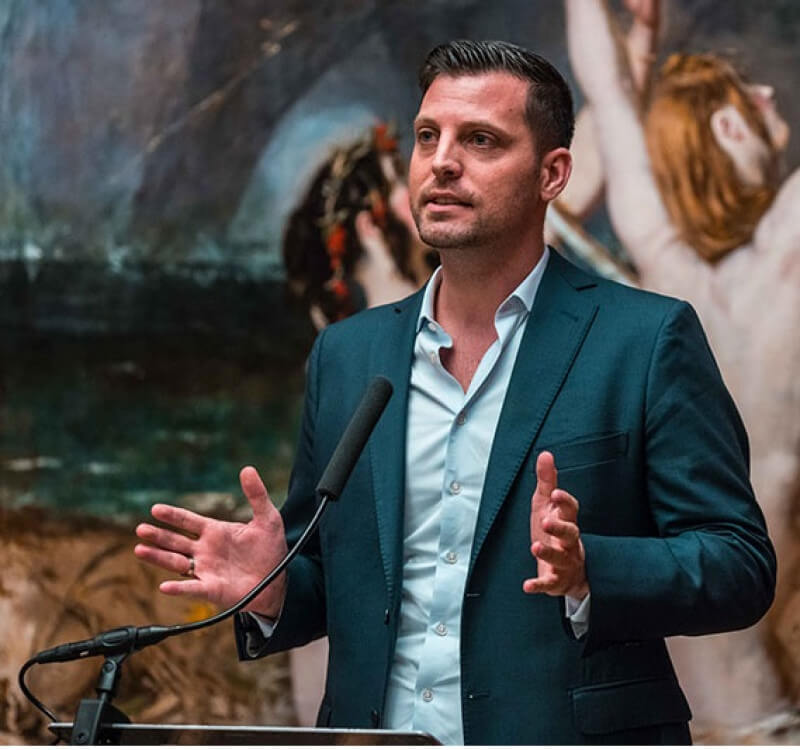
Focusing on Africa’s challenges and opportunities in digital health
The technology has risen to the challenge to fill the void created by the lack of medical personnel on the continent
Omnia Health Live Africa (live.Omnia-Health.com) set to bring together policy drivers, thought leaders, expert clinicians and decision-makers to transform healthcare’s most pressing challenges through collaboration and empowerment.
The international healthcare community sits at a critical juncture, particularly with the COVID-19 pandemic placing a spotlight on some of the industry’s biggest resource challenges.
According to Wouter Molman, Executive Vice President for Informa Markets – Healthcare, the pressures placed on Africa’s healthcare systems over the last six months have led to a stronger call for innovative technological and digital solutions to support better patient management, universal access and disease prevention.
Omnia Health Live Africa, a free-to-attend virtual event from 12-16 October 2020, will address human, infrastructural and policy challenges and opportunities relating to the adoption of these digital health technologies in Africa.
The largest virtual healthcare tradeshow of its kind in Africa, brought by Informa Markets, the five-day event will unite some of the most innovative and knowledgeable minds from African healthcare communities, allowing attendees to keep up to date on the latest developments shaping the African healthcare industry.
Technologies such as the Internet of Things, wearables, and sensors are opening up possibilities for easier monitoring of individuals’ health in remote areas. According to reports, more than 400 million people (bit.ly/3nkBh9C) live on the continent with little or no access to healthcare. Half of this population lives in rural areas, but only one-quarter of doctors in Africa are deployed there.
Big data and telemedicine are also gaining widespread adoption across Africa. Recently, the Health Professions Council of South Africa (HPCSA) amended its guidelines for telemedicine. The technology has risen to the challenge to fill the void created by the lack of medical personnel on the continent.
Technologies such as the Internet of Things, wearables, and sensors are opening up possibilities for easier monitoring of individuals’ health in remote areas
For instance, wider adoption of telemedicine turned out to be an asset for countries such as Nigeria where, according to the World Health Organisation (WHO), there are only four doctors per 10,000 patients, or South Africa (bit.ly/3ntuXwC) where reportedly at least 80 per cent of the population doesn’t have direct access to professional healthcare advice because they either can’t afford it or live in rural areas without medical facilities.
Artificial intelligence (AI) is also a radical game-changer, offering tremendous promise in transforming healthcare in Africa. It acts as a viable tool for tackling health challenges, reducing costs, and improving health access and quality. A breakthrough use of the technology has been in using it to scan through lung CTs for signs of COVID–related pneumonia.
A worldwide shortage of healthcare workers, particularly serious in many African countries, is predicted to reach 18 million by 2030 (bit.ly/3lrk0tJ). This increases the case for investment in AI tools, which can help nurses and community health workers diagnose and treat illnesses typically seen by doctors.
Wouter Molman, Executive Vice President for Informa Markets – Healthcare explains that both AI and telemedicine will be discussed by experts during sessions on infrastructure and digital innovation at Omnia Health Live Africa. “Attendees will learn how to apply AI in a health maturity framework, while a panel discussion in collaboration with the Novartis Foundation will address telemedicine opportunities and challenges in Africa from a policy and regulatory perspective.”
In all, attendees will access over 30 clinical and business sessions that will feature more than 110 global speakers who will empower the virtual audience with access to the latest healthcare industry content. Speakers include renowned names such as Dr. John Nkemgasong, Irene Ogongo and Prof. Morgan Chetty, among others.
The event has adopted six pillars as the foundation for the knowledge-sharing sessions. These include Patient Safety, Leadership, Diagnostics, Infrastructure, Supply Chain and Evidence-Based Medicine. The pillars have been carefully curated to address African specific healthcare issues with topical and relevant information and education.
With the healthcare industry increasingly looking to connect and collaborate online, Omnia Health Live Africa also offers exciting opportunities for hospital management, medical equipment distributors and healthcare trade professionals to interact virtually, build new connections and source cutting-edge products and services.
Exhibitors may gain access to attendees who are primarily from Africa; initiate engagement with prospects; benefit from attendee insights for smarter matchmaking; showcase brands and products in a virtual exhibition hall; and interact with potential clients in real-time.

